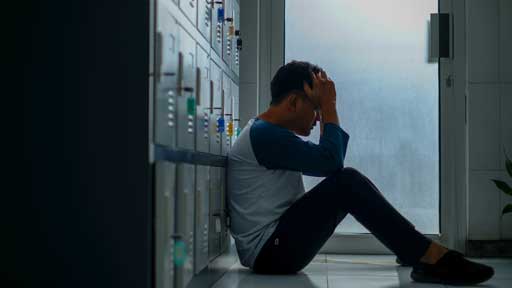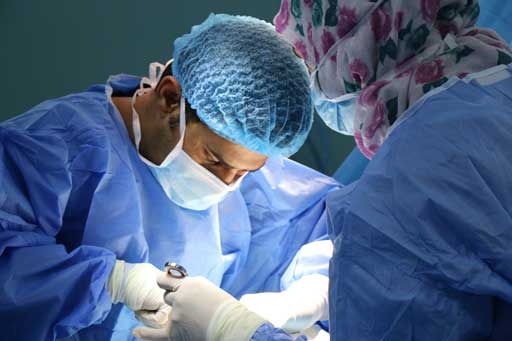Last updated: 21 April 2023
7 reasons why Ayurveda is relevant today
Ayurveda is the world's oldest living system of holistic health, originating some 5,000 years ago in India. During the British occupation of India, it was heavily suppressed and not openly practiced or taught. In India's post colonial era, Ayurveda was supplanted by Western medicine and still remains on the fringe. Despite this, however, Ayurveda as an industry is rapidly growing, both within and outside India. And as a science and system of holistic health, it is increasingly being recognized, respected, and adopted for its ability to alleviate disease and improve physical and mental well-being. This article emphasize on ayurveda importance in modern world and why ayurveda is still relevant.
That history could not erase Ayurveda and that Ayurveda is growing today are signs that merit attention. Maybe there is something here that can help us deal with the ongoing pandemic. Maybe there is something here that can help us restore balance in our deeply imbalanced modern lifestyle. Maybe there is something here that can help us to heal from what ails us.
Here below are seven reasons why Ayurveda remains relevant today, perhaps more now than ever before.
That history could not erase Ayurveda and that Ayurveda is growing today are signs that merit attention. Maybe there is something here that can help us deal with the ongoing pandemic. Maybe there is something here that can help us restore balance in our deeply imbalanced modern lifestyle. Maybe there is something here that can help us to heal from what ails us.
Here below are seven reasons why Ayurveda remains relevant today, perhaps more now than ever before.
1. Detoxification
Revitalize your health, inside and out with detoxification.
What is detoxification ?
Detoxification is the process of removing harmful toxins from the body. These toxins can come from various sources, such as the environment, food, or even from within the body. The accumulation of toxins in the body can lead to a variety of health problems, including fatigue, digestive issues, and a weakened immune system. By undertaking a detoxification program, you can help your body eliminate these harmful substances and restore its natural balance. This can be achieved through a variety of methods, including dietary changes, exercise, and the use of supplements and herbs. Detoxification can leave you feeling rejuvenated and energized, with improved overall health and wellbeing. Read about detox at home
Toxins are unavoidable. They are in the air we breathe, the food we eat, the drinks we consume, and even in the thoughts we think. There are two broad types of toxins: exogenous and endogenous. Exogenous toxins come to us from outside ourselves: food, water, air, pollutants, and negative information. Endogenous toxins are generated inside our body, usually as a result of biological processes but psychological processes. The quantum of endogenous toxins far exceeds the quantum of exogenous toxins. Simply put, your body and mind produce most of the toxins that are in you, or at least more so, than the exogenous sources.
There are various types of detoxification programs available, ranging from short-term cleanses to long-term lifestyle changes. While some programs may involve drastic changes in diet and lifestyle, others may be more gentle and incorporate small, manageable changes. It is important to choose a detoxification program that is appropriate for your individual needs and goals, and to consult with a healthcare professional before embarking on any new health regimen.
Ayurveda tells us that when toxins accumulate in the body, they interfere with our biological functions, such as digestion and the proper metabolization of food. The accumulation of toxins and the presence of toxins in places where they should not be are the root cause of disease, according to Ayurveda. Therefore, we ought to be concerned about toxins for two reasons: (1) our body produces them naturally, even if we are seemingly in great health, and (2) they will cause ill health if left unchecked. For this reason, Ayurveda is relevant to you because through Ayurvedic treatment and the adoption of an Ayurvedic lifestyle, you can ensure that toxins are periodically removed from your body and do not become a problem for you in the future.
Toxins are unavoidable. They are in the air we breathe, the food we eat, the drinks we consume, and even in the thoughts we think. There are two broad types of toxins: exogenous and endogenous. Exogenous toxins come to us from outside ourselves: food, water, air, pollutants, and negative information. Endogenous toxins are generated inside our body, usually as a result of biological processes but psychological processes. The quantum of endogenous toxins far exceeds the quantum of exogenous toxins. Simply put, your body and mind produce most of the toxins that are in you, or at least more so, than the exogenous sources.
There are various types of detoxification programs available, ranging from short-term cleanses to long-term lifestyle changes. While some programs may involve drastic changes in diet and lifestyle, others may be more gentle and incorporate small, manageable changes. It is important to choose a detoxification program that is appropriate for your individual needs and goals, and to consult with a healthcare professional before embarking on any new health regimen.
Ayurveda tells us that when toxins accumulate in the body, they interfere with our biological functions, such as digestion and the proper metabolization of food. The accumulation of toxins and the presence of toxins in places where they should not be are the root cause of disease, according to Ayurveda. Therefore, we ought to be concerned about toxins for two reasons: (1) our body produces them naturally, even if we are seemingly in great health, and (2) they will cause ill health if left unchecked. For this reason, Ayurveda is relevant to you because through Ayurvedic treatment and the adoption of an Ayurvedic lifestyle, you can ensure that toxins are periodically removed from your body and do not become a problem for you in the future.
2. Pain Relief
Relief for every ache: Live pain-free and active again.
None of us in life are immune to pain, whether physical or mental. We all have it. We all experience it. And if we don't have it right now, it's waiting for us at some point in the future. Very often, we don't know why we have pain. We can experience neck pain or back pain or hip pain or some other form of pain, without any obvious explanation. In other words, pain can show up in our life and we don't know what we ate, did, or said to attract to it. Ayurveda, with its focus on toxicity as the chief cause of disease, can help us to understand pain in a way that is not so obvious, but which makes perfect sense once we understand Ayurveda and once we understand ourselves through the lens of Ayurveda.
Pain is a weakness that can negatively affect your quality of life. Acute or chronic pain can interfere with your daily activities and lead to depression and anxiety. Pain management involves strategies to prevent or eliminate pain. This includes medications, physical therapy, acupuncture, massage, and other non-invasive treatments. By finding the right way to relieve pain, you can improve, reduce discomfort and increase your sense of well-being. It’s important to work with a healthcare professional to determine the cause of your pain and develop an individualized treatment plan that addresses your specific needs and goals.
If we can agree that we all have pain or will experience it in the future; if we can agree we all want heal from pain and limit its recurrences, then we can agree that Ayurveda is relevant to you and me.
Pain is a weakness that can negatively affect your quality of life. Acute or chronic pain can interfere with your daily activities and lead to depression and anxiety. Pain management involves strategies to prevent or eliminate pain. This includes medications, physical therapy, acupuncture, massage, and other non-invasive treatments. By finding the right way to relieve pain, you can improve, reduce discomfort and increase your sense of well-being. It’s important to work with a healthcare professional to determine the cause of your pain and develop an individualized treatment plan that addresses your specific needs and goals.
If we can agree that we all have pain or will experience it in the future; if we can agree we all want heal from pain and limit its recurrences, then we can agree that Ayurveda is relevant to you and me.
3. Immunity
Boost your body's defense: Stronger immunity, stronger you.
We have all heard of our friend, the immune system. We know that it's important. We know that it is vital to our health. We all know that if it is not functioning optimally, we could get sick. Sometimes very sick. The events of the past two years have underscored the foregoing like never before. While the importance of having a strong immune system is universally acknowledged and while the risks of a weak immune system have been globally witnessed, very few actually know that Ayurveda is a system of healthcare that builds and strengthens the immune system.
Ayurveda argues that one of the primary impediments to a strong and properly functioning immune system is the accumulation of toxins in the body. Why toxins? Because toxins can impede digestion and the absorption of nutrients that are vital in building and maintaining our immune system. How does the immune system become strong? Answer: proper nutrition, proper digestion, and proper elimination of waste. In Ayurveda, there is a saying: "You are not what you eat. You are what you digest." Digestion is the process of converting food into energy and nutrients that the immune system needs, as also other systems in the body.
A weakened immune system can lead to a variety of health issues, including the common cold, flu, rash, common cold, autoimmune diseases, and even cancer hence the immune system supporting and strengthening the immune system is essential to good health. Besides adopting healthy habits and taking supplements, other ways to boost the immune system include staying hydrated, avoiding smoking and excess alcohol, maintaining a healthy weight, practicing good hygiene and exercising regularly, such as walking, jogging or cycling, by increasing blood circulation and boosting the immune system increased so cell production Can help boost the immune system It is important to work with a healthcare professional to determine the best course of action for your individual needs and to develop an appropriate plan if to support your immune system. With a strong immune system, you can improve overall health and well-being, reducing your risk of chronic infections and diseases.
If we can agree that having a strong immune system is important for every human being; if we can agree that the world would be a safer placer place if everyone had a strong immune system; then we can agree that Ayurveda is relevant to you and me.
Ayurveda argues that one of the primary impediments to a strong and properly functioning immune system is the accumulation of toxins in the body. Why toxins? Because toxins can impede digestion and the absorption of nutrients that are vital in building and maintaining our immune system. How does the immune system become strong? Answer: proper nutrition, proper digestion, and proper elimination of waste. In Ayurveda, there is a saying: "You are not what you eat. You are what you digest." Digestion is the process of converting food into energy and nutrients that the immune system needs, as also other systems in the body.
A weakened immune system can lead to a variety of health issues, including the common cold, flu, rash, common cold, autoimmune diseases, and even cancer hence the immune system supporting and strengthening the immune system is essential to good health. Besides adopting healthy habits and taking supplements, other ways to boost the immune system include staying hydrated, avoiding smoking and excess alcohol, maintaining a healthy weight, practicing good hygiene and exercising regularly, such as walking, jogging or cycling, by increasing blood circulation and boosting the immune system increased so cell production Can help boost the immune system It is important to work with a healthcare professional to determine the best course of action for your individual needs and to develop an appropriate plan if to support your immune system. With a strong immune system, you can improve overall health and well-being, reducing your risk of chronic infections and diseases.
If we can agree that having a strong immune system is important for every human being; if we can agree that the world would be a safer placer place if everyone had a strong immune system; then we can agree that Ayurveda is relevant to you and me.
4. Lifestyle Optimization
Lifestyle means different things to different people.
Lifestyle means different things to different people. It is a vast term, encompassing where we live, what we do for work, how we spend our free time, what we do for exercise and leisure, how we eat, when we eat, when we sleep, how often we have sex, the habits and routines we follow, the ethics and attitudes we observe, and so forth. Despite the vast differences in lifestyle from one person to another, one thing is for certain: we all want to live better, eat better, sleep better, be more comfortable, experience more pleasure and less pain. In other words, we all want a better lifestyle.
A healthy lifestyle means making conscious choices that support physical, mental, and emotional well-being. You can boost energy, improve mood, and reduce your risk of chronic disease through healthy habits such as exercise, a balanced diet, stress management, and activities accepting it so Get guidance from a healthcare professional for appropriate planning.
The path to a better lifestyle is not just about making more money. The path to a better lifestyle is also related to our health. We need to be in good health to earn more money. We need to be in good health to have a lifestyle that we enjoy. So health and lifestyle are intimately connected. And if we truly want a better lifestyle and a better quality of life, we need to learn how to manage our lifestyle and how to optimize it. Ayurveda gives us the tools to optimize our lifestyle, so that we can get the most out of life. And if you can agree that you want more out of life, Ayurveda is relevant to you. If you can agree that there is still scope to optimize your lifestyle and become more productive and efficient, Ayurveda is relevant to you.
A healthy lifestyle means making conscious choices that support physical, mental, and emotional well-being. You can boost energy, improve mood, and reduce your risk of chronic disease through healthy habits such as exercise, a balanced diet, stress management, and activities accepting it so Get guidance from a healthcare professional for appropriate planning.
The path to a better lifestyle is not just about making more money. The path to a better lifestyle is also related to our health. We need to be in good health to earn more money. We need to be in good health to have a lifestyle that we enjoy. So health and lifestyle are intimately connected. And if we truly want a better lifestyle and a better quality of life, we need to learn how to manage our lifestyle and how to optimize it. Ayurveda gives us the tools to optimize our lifestyle, so that we can get the most out of life. And if you can agree that you want more out of life, Ayurveda is relevant to you. If you can agree that there is still scope to optimize your lifestyle and become more productive and efficient, Ayurveda is relevant to you.
5. Stress Relief
Like toxins, it's almost impossible to avoid stress.
Like toxins, it's almost impossible to avoid stress. Stress is all around us and in us. It's in our relationships. It's in our work. It's in our daily commutes and the traffic we encounter. It's in the media. It's in our politics. It's in every inconvenience, every betrayal, every frustration and every falling short of expectations. But so far, I have named only the conscious forms of stress, which accounts for not more than 20% of the stress that afflicts us.
Reducing stress means identifying stressors and taking steps to reduce them. Practices like meditation, exercise, and seeking help can improve mood, sleep, and reduce the risk of chronic health issues. Work with a healthcare professional to develop a comprehensive plan to effectively manage stress and improve overall health and well-being.
The greater part of stress is unconscious stress. The stress that resides in our memories, in our cells, in the deepest pockets of our mind and heart, in the painful experiences that we've rather forget but which surface from time to time. Unconscious stress is the most damaging stress because we don't even know we have it, yet it lives and festers in us.
The linkage between stress and health is well-documented in Western medicine and being increasingly researched. Simply put, stress ages us and is a major cause of chronic illness, including heart disease and cancer. Ayurveda goes a step further and argues that stress is a major source of toxins, which are the root cause of disease. Therefore, many of the treatments and herbal remedies in Ayurveda are aimed at reducing stress, reducing the damage caused by stress, and inducing relaxation, restfulness, and mental quietude.
If we can agree that stress and ill health are linked; if we can agree that stress is virtually impossible to avoid; and if we can agree that food, money, leisure and pleasure are not sufficient antidotes to stress, then we can agree that Ayurveda is relevant to you and me.
Reducing stress means identifying stressors and taking steps to reduce them. Practices like meditation, exercise, and seeking help can improve mood, sleep, and reduce the risk of chronic health issues. Work with a healthcare professional to develop a comprehensive plan to effectively manage stress and improve overall health and well-being.
The greater part of stress is unconscious stress. The stress that resides in our memories, in our cells, in the deepest pockets of our mind and heart, in the painful experiences that we've rather forget but which surface from time to time. Unconscious stress is the most damaging stress because we don't even know we have it, yet it lives and festers in us.
The linkage between stress and health is well-documented in Western medicine and being increasingly researched. Simply put, stress ages us and is a major cause of chronic illness, including heart disease and cancer. Ayurveda goes a step further and argues that stress is a major source of toxins, which are the root cause of disease. Therefore, many of the treatments and herbal remedies in Ayurveda are aimed at reducing stress, reducing the damage caused by stress, and inducing relaxation, restfulness, and mental quietude.
If we can agree that stress and ill health are linked; if we can agree that stress is virtually impossible to avoid; and if we can agree that food, money, leisure and pleasure are not sufficient antidotes to stress, then we can agree that Ayurveda is relevant to you and me.
6. Surgery Prevention
Prevent to avoid: Your path to surgery-free living.
We live in a world where surgery is available, and often recommended, for a wide range of ailments, particularly as we get older. Every person reading this will know at least one person who has had a hip replacement, a knee replacement or some other elective surgery. At some point in life, you are going to be invited to consider surgery for something or someone. You may be called upon by a friend or loved one to offer advice about whether to proceed with a surgery or not. Simply put, surgery will touch your life, either physically or in a decision context.
Surgery is not easy to undergo. It is not without consequences. It can be time-consuming and expensive. It can have long-term consequences. Often times, it does not offer a cure, but just relief from an ailment. Sometimes the intention of a surgeon or surgery is not to heal an ailment but just to prevent it from spreading or getting worse. But no matter what the intention, surgery is always a heavy burden to bear for one who has to undergo it.
It is also true that surgery is unavoidable for many, but if it can be avoided or prevented, is this not more desirable? And if you have no choice but to get surgery, wouldn't you like to recover faster? If you have answered "yes" to the foregoing questions, then Ayurveda is undoubtedly relevant to you.
Before you proceed with surgery, consider Ayurvedic treatment and perhaps you may be able to avoid it. And if you have already undergone surgery, consider Ayurvedic treatment not only to recover faster, but to detoxify the body from all the drugs that were given to you during the surgery and after it. Ayurveda have helped people in preventing surgeries related to sciatica, spondylitis and back pain.
Surgery is not easy to undergo. It is not without consequences. It can be time-consuming and expensive. It can have long-term consequences. Often times, it does not offer a cure, but just relief from an ailment. Sometimes the intention of a surgeon or surgery is not to heal an ailment but just to prevent it from spreading or getting worse. But no matter what the intention, surgery is always a heavy burden to bear for one who has to undergo it.
It is also true that surgery is unavoidable for many, but if it can be avoided or prevented, is this not more desirable? And if you have no choice but to get surgery, wouldn't you like to recover faster? If you have answered "yes" to the foregoing questions, then Ayurveda is undoubtedly relevant to you.
Before you proceed with surgery, consider Ayurvedic treatment and perhaps you may be able to avoid it. And if you have already undergone surgery, consider Ayurvedic treatment not only to recover faster, but to detoxify the body from all the drugs that were given to you during the surgery and after it. Ayurveda have helped people in preventing surgeries related to sciatica, spondylitis and back pain.
7. Free from Prescription Drugs
Reclaim your health: Prescription-free living starts here.
In today's world, there are pills for everything: blood pressure, cholesterol, headaches, allergies, chronic pain, epilepsy, diabetes, depression and much more. As we get older, we tend to believe, or get convinced by doctors, that we need more and more medication to control various diseases or ailments. And by the time we are in our seventh or eighth decade, we are living on a cocktail of prescription drugs. So many so that we become worried that we cannot live without them. But is this the way to live? Is this the quality of life that we deem acceptable for ourselves?
In life, we have two choices: you can either write your own prescriptions or have someone write it for you. In other words, you can either make your own decisions or you can outsource that responsibility to someone else. Ayurveda offers every individual the knowledge to write your own prescriptions: both literally and figuratively. You can prescribe for yourself the right time to eat, the right quantity to eat, the right combinations of food, the right supplements to take, the right time to go to bed, the right time to exercise, the right time to work, and so on. If you learn, understand and apply the principles of healthy living according to Ayurveda, you can write your own prescriptions and truly become the captain of your ship. The choice is yours. You can either be drugged-out or drug-free.
In life, we have two choices: you can either write your own prescriptions or have someone write it for you. In other words, you can either make your own decisions or you can outsource that responsibility to someone else. Ayurveda offers every individual the knowledge to write your own prescriptions: both literally and figuratively. You can prescribe for yourself the right time to eat, the right quantity to eat, the right combinations of food, the right supplements to take, the right time to go to bed, the right time to exercise, the right time to work, and so on. If you learn, understand and apply the principles of healthy living according to Ayurveda, you can write your own prescriptions and truly become the captain of your ship. The choice is yours. You can either be drugged-out or drug-free.
Written by Alykhan Alidina
|
|
The best decision you will ever makeThe best decision you could ever make is to decide to travel to India, go to a holistic health resort and experience Ayurveda. Why? Because you may discover that a seemingly incurable condition is suddenly gone. You may realize that there is, and always was, a cure to your ailment. You may soon realize that you don’t have to accept nagging aches and pains as a necessary part of the aging process. But don’t take our word for it. Hear it from our clients.
|








